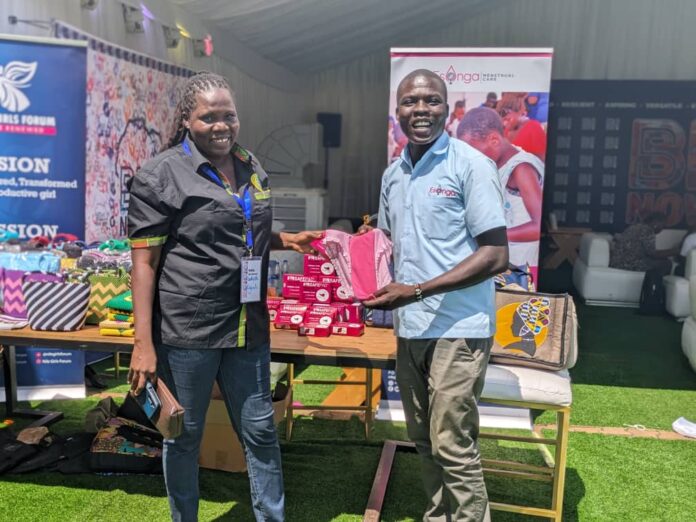Menstruation period poverty is more than an inconvenience; it is a profound systemic injustice that undermines the fundamental human rights of women and girls.
It is not merely about the lack of sanitary products but a complex intersection of economic, social, and cultural factors that impede education, health, and economic empowerment.
Eric Omondi the CEO of Esonga Mestrual Care, says, “At its core, period poverty signifies a denial of dignity. When a girl misses school due to her period, her right to education is infringed upon. When a woman is unable to engage fully in economic activities because of menstrual management challenges, her right to work is compromised. Additionally, inadequate menstrual hygiene can lead to infections and other health complications, thereby violating her right to health.”
He added that the consequences of period poverty are far-reaching. It spreads the cycle of poverty as women and girls with limited educational opportunities have fewer options for economic advancement.
This issue also worsens gender inequality, as societal norms and expectations around menstruation reinforce discriminatory practices. Moreover, the health implications are significant, including an increased risk of infections, reproductive health issues, and psychological distress.
In Uganda, menstrual period poverty is a pressing issue affecting millions. According to a 2021 study by the Ugandan Ministry of Health, approximately 66% of girls in rural areas have missed school due to menstruation-related issues.
Additionally, a report from the United Nations Children’s Fund (UNICEF) reveals that about 56% of girls in Uganda lack access to sanitary products, with many relying on makeshift solutions that are both ineffective and unhygienic.
The lack of proper Menstrual Hygiene Management (MHM) infrastructure also worsens the problem.
In rural communities, only 23% of schools have basic facilities for menstrual hygiene management, including clean water and private latrines. This inadequate infrastructure further hinders girls’ ability to manage their periods with dignity.
Organizations like Esonga Menstrual Care have played a key role in addressing period poverty by providing accessible and affordable menstrual products along with comprehensive menstrual health education.
The organization tackles the issue on multiple fronts. Their commitment to producing reusable sanitary pads represents a significant step towards sustainability and mitigating the environmental impact of menstrual waste.
Sandra Akiror, a Master Trainer in Menstruation and WASH, said, “Esonga’s approach extends beyond mere product provision. The organization’s focus on community engagement and capacity building is crucial for creating lasting change.”
By training and empowering local women as menstrual health educators, Esonga builds a network of support within communities. This approach not only addresses the immediate needs of women and girls but also strengthens the overall resilience of the community and ensures sustainability.
Mr. Omondi says that while organizations like Esonga are making significant strides, systemic changes are essential. Governments must prioritize menstrual health within public health agendas by providing free or affordable menstrual products, investing in menstrual health infrastructure, and ensuring comprehensive sex education in communities.
Dr. Ivan Kimumwe of Ensonga says we all must challenge societal norms and stigma around menstruation by promoting open conversations and breaking taboos, thereby fostering a more supportive environment for women and girls.















